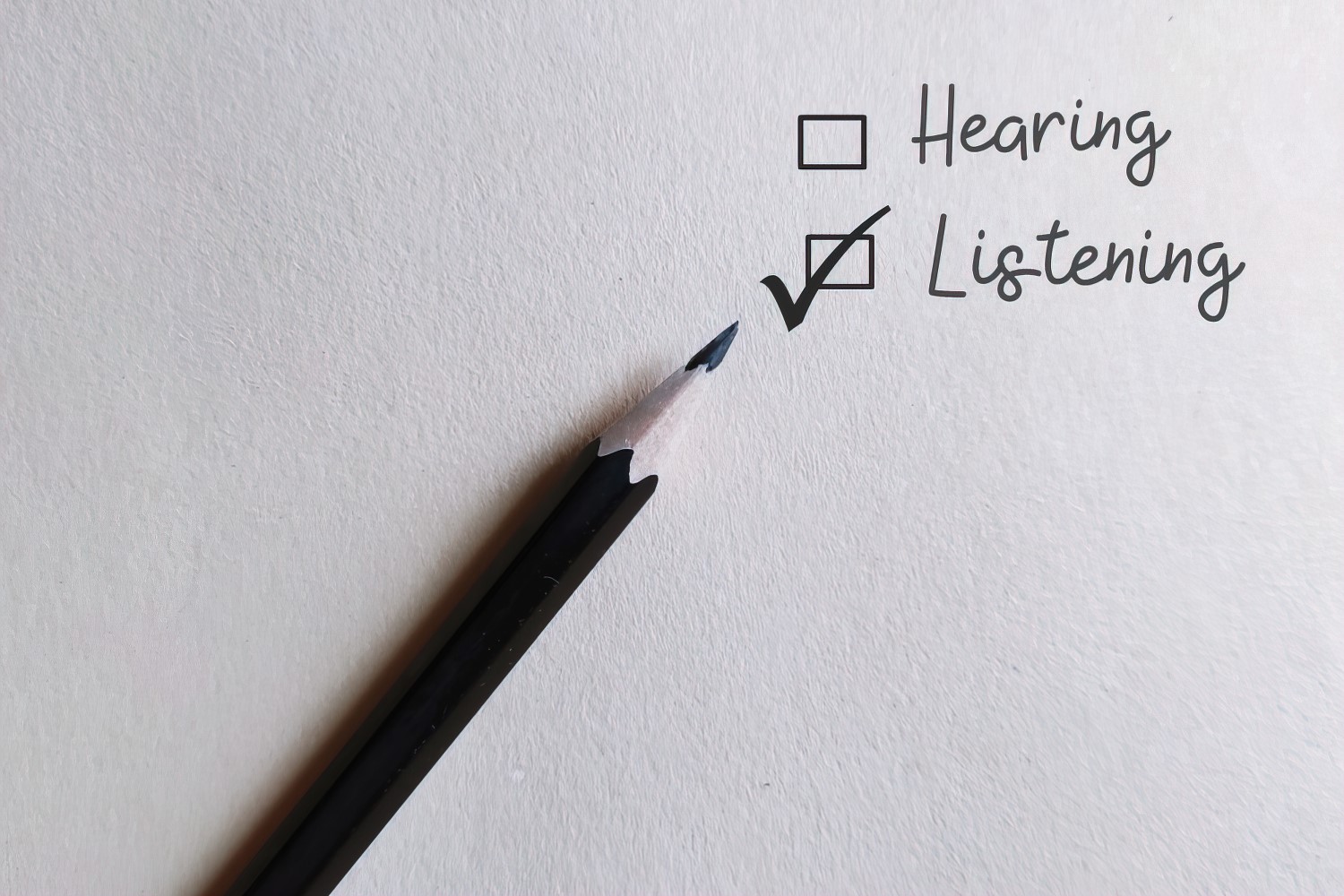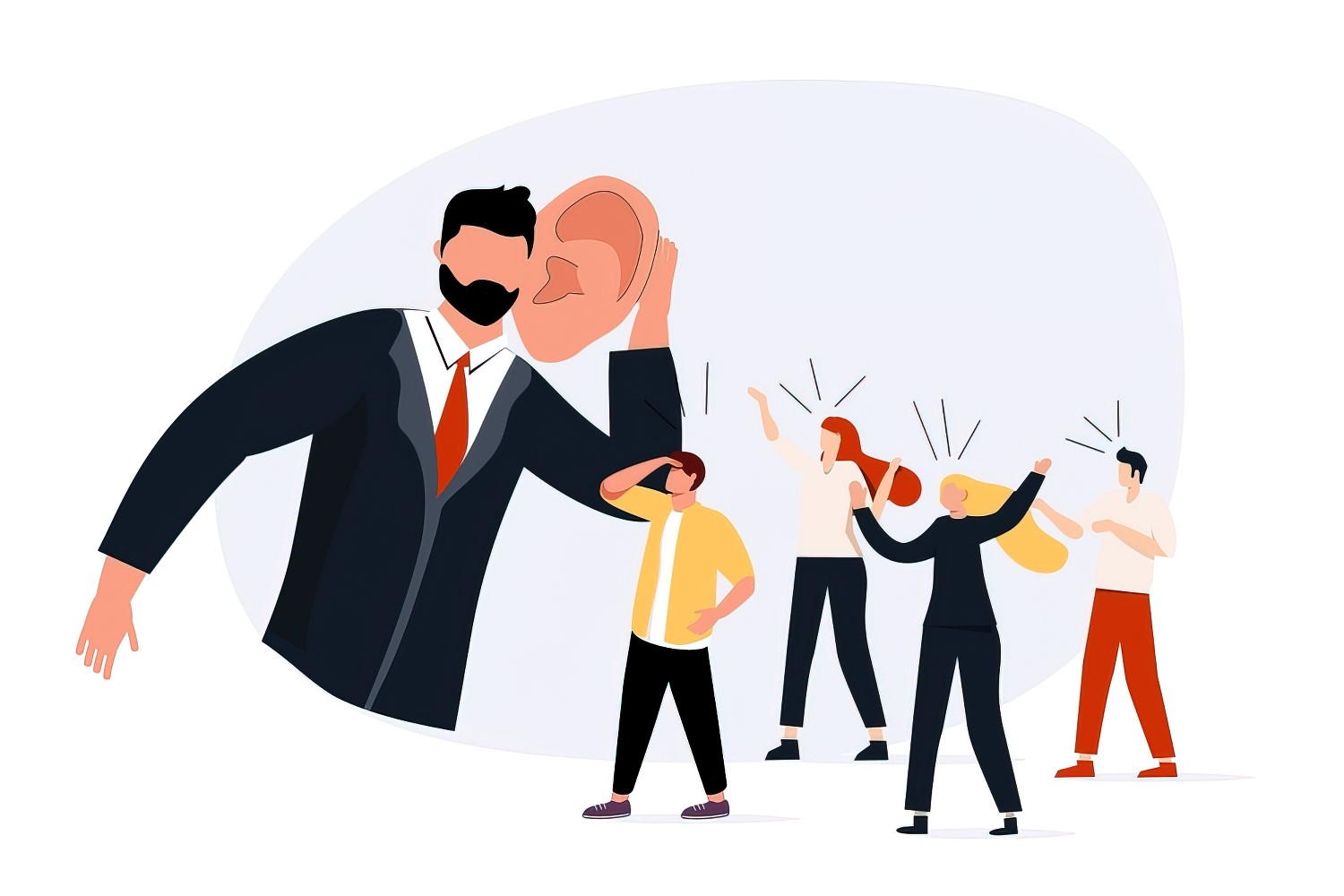Are you a good listener? In fact, listening is a soft ability that is highly valued but also quite challenging to develop. Good listeners are more likely to comprehend tasks and projects at work, forge deeper bonds with coworkers, and settle disputes with ease.
Learn the value of listening skills in the workplace and how to develop effective listening habits with Synnex FPT.
What exactly are listening skills?
Theoretically, listening comprehension is the receipt of sound through the ear. However, listening abilities should be viewed as a person’s capacity to concentrate their auditory, and visual (possibly even tactile) in order to acquire and comprehend information during communication. After that, they will assess the data and react to it. Effective listeners can comprehend what they hear and give appropriate responses.
Active Listening
There are two components to active listening in the workplace: attention and reflection.
Paying Attention
Attention involves holding eye contact, nodding, having good posture, and mirroring the speaker’s body language to show genuine interest in what they’re saying.
In addition to these nonverbal cues, you must also allow the speaker to finish their thought in its entirety.
These are all cues that you’re focused on what the speaker is saying.
Reflection and Responding
Reflection is the repeating and paraphrasing of what the speaker has said to show that you truly understand what they’re telling you.
What Makes a Good Listener
Good listeners always strive to fully understand what others want to communicate, particularly when the statement lacks clarity. Listening requires the ability to decode and interpret verbal messages and nonverbal cues, like tone of voice, facial expressions, and physical posture.
Active listeners also show their curiosity by asking questions. Do this, and you will make a great impression.
Through body language and other cues, good listeners subtly communicate to the speaker that they’re listening. Additionally, they encourage and welcome the thoughts, opinions, and feelings of others.
One way to demonstrate active listening is to allow the interviewer to complete each question and statement before responding. Do not interrupt and be sure that your response genuinely answers the question.
Examples of Effective Listening
Here are examples of effective listening in the workplace:
- An interviewer noticed that a candidate didn’t make eye contact with her while talking about her strengths.
- A customer service worker repeats a patron’s problem or complaint back to her to reassure her that she has been heard.
- A counselor nods and says, “I hear you,” to encourage a client to continue to talk about their traumatic experience.
- A meeting facilitator encourages a reticent group member to share her views about a proposal.
- A manager summarizes what her team has said during a staff meeting and asks them if she has heard things correctly.
Common mistakes made in the process of listening that you need to improve
Interrupting
Interrupting indicates that your listening skills are underdeveloped. Likewise, responding in a way that fails to answer the question will reflect poorly on your listening skills, especially in a job interview.
Talking Too Much
Talking too much is also problematic, as proper conversations should be well balanced, with every party involved getting equal time to speak. Monopolizing a conversation prevents you from listening and the other party from fully expressing what they want to say. In the end, this will lead to you making a poor impression.
Being Distracted
Looking distracted is also a quality of a poor listener. This could involve anything from avoiding eye contact to checking your phone or watch while someone else is talking.
Any profession requires effective listening, and learning how to do so can provide you access to many more rewarding chances in the future. Listening is about receiving, analyzing and responding to information you receive and responding to it. A good listener not only understands what you say, but also anticipates what you are “about” to say.
In addition to listening skills, teamwork skills is another abilities that managers and employers respect more and more in the modern workplace.





